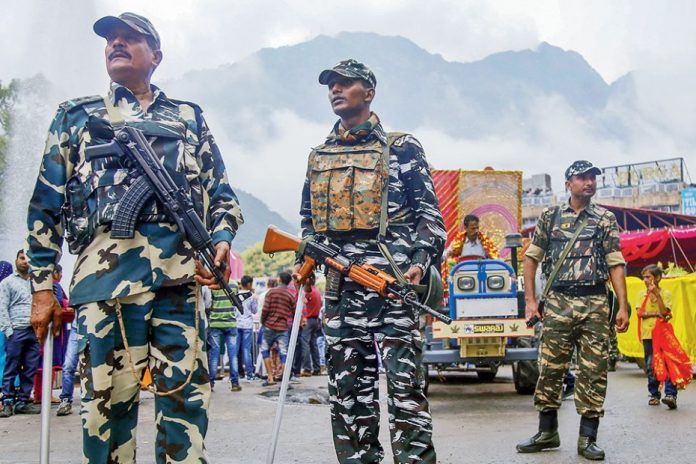
Power of BSF increased in Punjab and Bengal- reduced scope in Gujarat… know what it means- Border Security Force (BSF) officers will now have the power to conduct arrest, search and seizure within the three new states (Assam, West Bengal, and Punjab) that share international borders with Pakistan and Bangladesh up to a range of 50 km. The Ministry of Home Affairs (MHA) claims that the recent downing of a drone from across the border has prompted this expansion in the BSF’s jurisdiction.
However, the move has intensified the debate over the autonomy of the state. The Chief Minister of Punjab has already opposed it. Charanjit Singh Channi said, “I strongly condemn the unilateral decision of the government to give additional powers to the BSF within a radius of 50 km along the international borders, which is a direct attack on federalism. I request the Union Home Minister Amit Shah this irrational decision. I urge you to withdraw immediately.”
Home Ministry claims – illegal activities will be curbed
The MHA claims that the decision has been taken to curb illegal activities involving national security in 10 states and two union territories, but it may also raise administrative and political issues. A senior police officer claims, “This is a very politically sensitive move. The main objective of the BSF is to guard the borders and prevent infiltration. Recent cases have shown that they are capable of guarding this new line.” are not.”
According to him, when searches and seizures are carried out, it can lead to regular clashes with the local police and villagers as well. “Their operational duties are around border posts, but with these new powers they will also work well in the jurisdiction of some states,” he said.
We won’t have to wait for local police: BSF
A senior BSF official said, “If we have intelligence, in any case, we will not have to wait for the reply of the local police and we can take preventive action in time.”
According to the new notification, BSF officers will be able to make arrests and conduct searches in West Bengal, Punjab, and Assam. The BSF has been empowered to take this action under the Code of Criminal Procedure (CrPC), the Passport Act, and the Passport (Entry into India) Act. In Assam, West Bengal, and Punjab, the BSF has got the same search and arrest powers as the state police.
The MHA has allowed raids and arrests in an area of 50 km inside Indian territory from the International Border (IB) with India-Pakistan and India-Bangladesh. Earlier this range was 15 km. Apart from this, BSF will also be able to conduct searches and arrests in Nagaland, Mizoram, Tripura, Manipur, and Ladakh.
Reduced Jurisdiction in Gujarat
However, with this, the BSF’s jurisdiction in Gujarat has been reduced and the border range has been reduced from 80 km to 50 km to bring about uniformity, while the radius area in Rajasthan has been kept at 50 km as before. . No boundaries have been set for the five northeastern states of Meghalaya, Nagaland, Mizoram, Tripura, and Manipur. Along with this, there is no boundary fixed in Jammu and Kashmir, and Ladakh.
Officials claim that BSF has been deployed on internal security duty in these states, so they act accordingly.
BSF can only arrest a person involved in a cognizable offense
The new notification empowers an officer of the rank of the lowest-ranked member of the BSF under the CrPC to exercise and discharge the powers and duties without orders of a magistrate and without a warrant. The officer is now empowered to arrest any person who is involved in any cognizable offense, or against whom a proper complaint has been made, or credible information has been received. A BSF officer has now been given the power to search the place entered by the person seeking to be arrested in the new area of his jurisdiction.
Section 139 of the Border Security Force Act, 1968 empowers the Center to notify from time to time the area and extent of operations of the Border Security Force. The Union Home Ministry has issued a notification revising the ‘Schedule’ of border areas where the BSF will have the powers of search, seizure and arrest under enactments such as the Passport Act, the NDPS Act and the Customs Act.





































